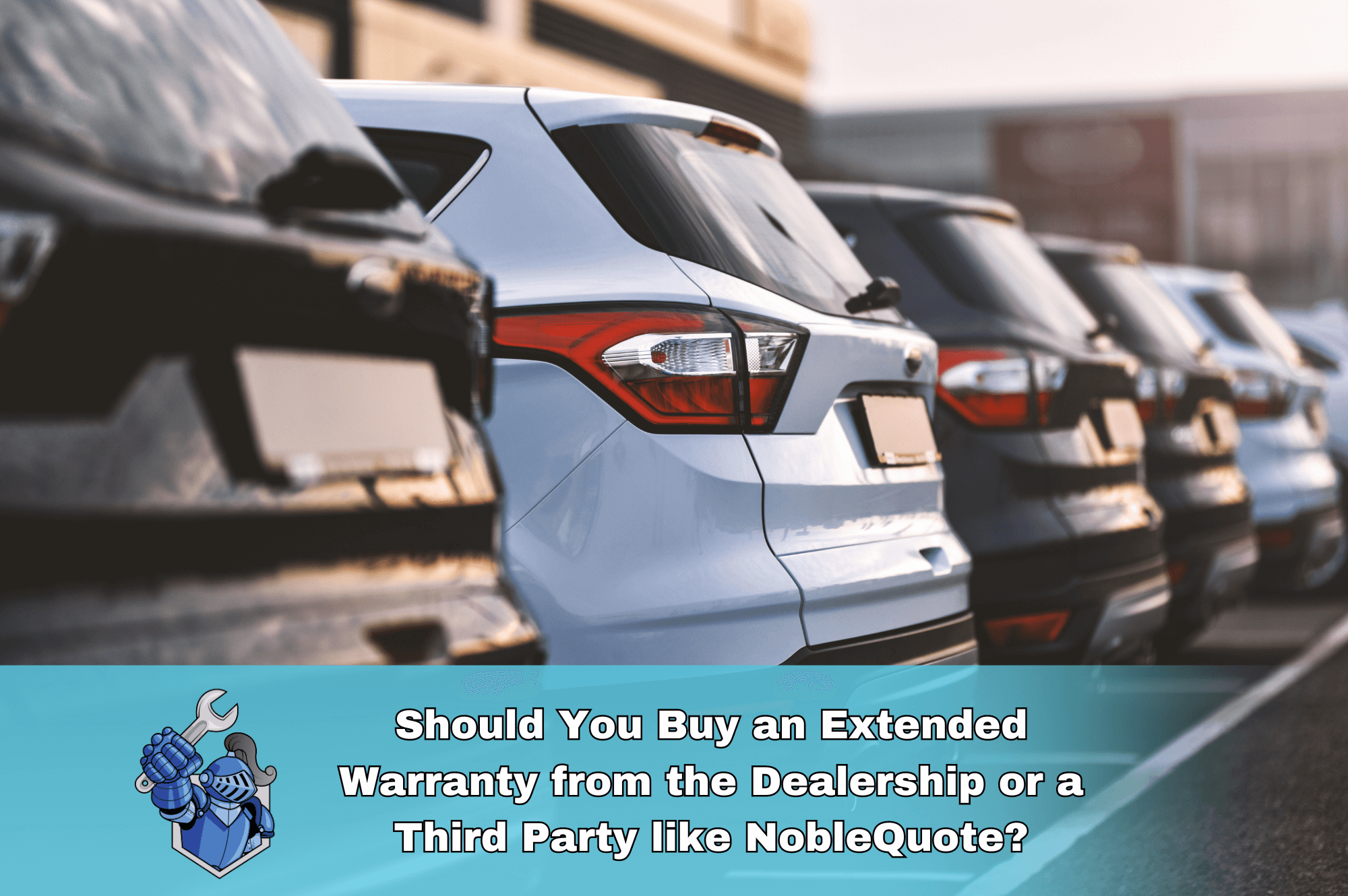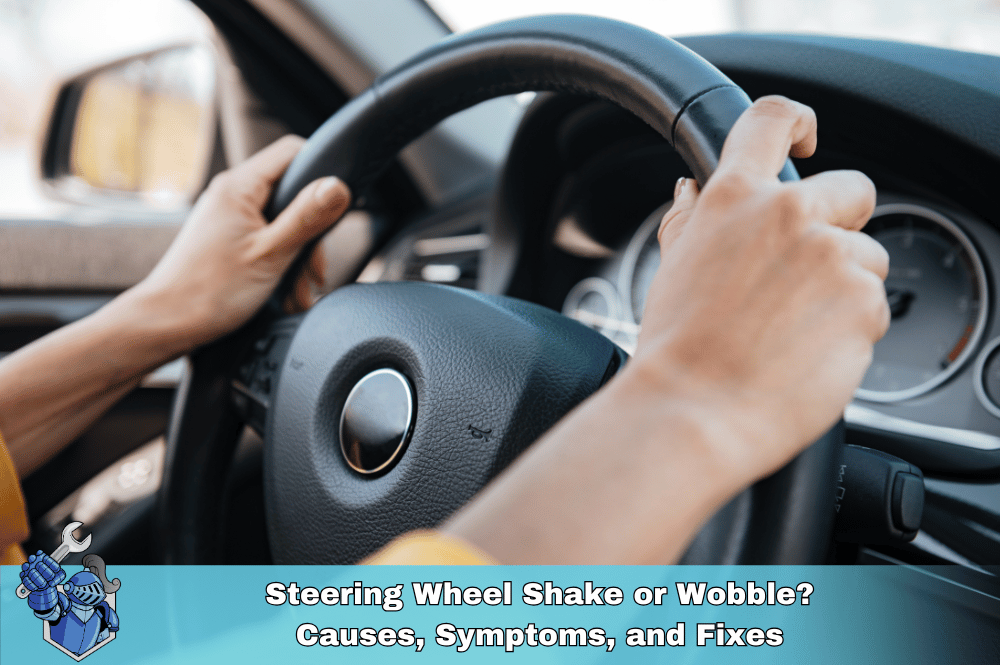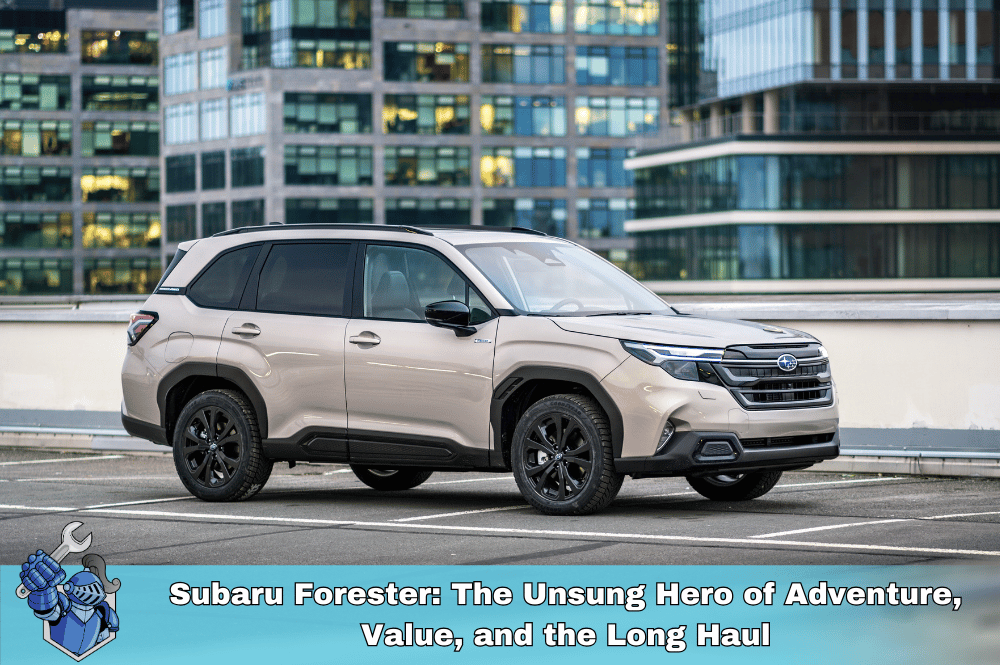When purchasing a new or used vehicle, the question of whether to buy an extended warranty from the dealership or a third-party provider like NobleQuote often arises. Understanding the differences between these options can help you make an informed decision that suits your needs and budget.
This article will explore the pros and cons of both dealership and third-party extended warranties, providing a comprehensive guide to help you choose the best option.
What is an Extended Car Warranty?
An extended car warranty, also known as a vehicle service contract (VSC), is an agreement between the car owner and the warranty provider. It covers the cost of certain repairs and replacements after the manufacturer's warranty expires. This type of warranty is designed to provide peace of mind and financial protection against unexpected vehicle repairs.
Types of Extended Warranties:
- Powertrain Warranty: Covers the engine, transmission, and other essential components.
- Bumper-to-Bumper Warranty: Provides more comprehensive coverage, including most parts of the vehicle except for wear-and-tear items.
- Wrap-Around Warranty: Extends the coverage of a powertrain warranty to include additional components.
- Specific Component Warranty: Focuses on particular systems like the air conditioning or electronics.
Dealership Extended Warranties
Benefits:
- Convenience: Purchasing an extended warranty from the dealership where you bought your car can be convenient. The dealership handles all paperwork and can often roll the cost into your car loan.
- Manufacturer-Backed: Dealership warranties are often backed by the car manufacturer, ensuring that the parts and services used in repairs are genuine and designed for your specific vehicle.
- Reputation and Trust: Dealerships usually have a reputation for quality service, and their warranties may come with a higher level of trust.
Drawbacks:
- Higher Cost: Dealership warranties are typically more expensive than third-party options. This higher cost can be attributed to the dealership's overhead and the manufacturer's involvement.
- Limited Coverage: Dealership warranties often have more exclusions and limitations. They may not cover as many types of repairs or may exclude certain parts and services.
- Less Flexibility: These warranties usually require you to have repairs performed at the dealership or an authorized repair shop, which can be inconvenient if you are traveling or prefer a different mechanic.
Considerations:
- Warranty Duration: Dealership warranties can vary significantly in length. Ensure you understand the duration and mileage limits.
- Transferability: Check if the warranty can be transferred to a new owner if you sell your car, which can add value to your vehicle.
- Coverage Area: Verify the geographic limitations of the warranty. Some dealership warranties may only be valid within certain regions or countries.
Third-Party Extended Warranties
Benefits:
- Cost-Effective: Third-party warranties are often more affordable than dealership warranties. These providers have lower overhead costs and can offer competitive pricing.
- Flexible Coverage: Third-party warranties typically offer more customizable plans, allowing you to choose the level of coverage that suits your needs. You can often select specific parts and services to include or exclude from your warranty.
- Wide Network of Repair Shops: Third-party warranties usually allow you to take your vehicle to a broader network of repair shops, providing more flexibility and convenience.
Drawbacks:
- Provider Reliability: Not all third-party providers are created equal. It is crucial to research the provider's reputation and customer reviews to ensure they are reliable and honor their warranties.
- Upfront Payment: Some third-party warranties may require a large upfront payment or monthly fees, which can be a burden for some car owners.
- Complex Claims Process: The claims process for third-party warranties can sometimes be more complicated and time-consuming compared to dealership warranties.
Considerations:
- Coverage Options: Third-party providers often offer a variety of plans. Look for one that fits your driving habits and vehicle needs.
- Customer Support: Evaluate the quality of customer service. A good provider should offer 24/7 support and a straightforward claims process.
- Reputation: Research online reviews and ratings. Look for providers with a history of satisfied customers and prompt claims handling.
Factors to Consider When Choosing an Extended Warranty
- Coverage Needs: Assess what parts and systems of your vehicle you want to be covered. Some warranties cover major components like the engine and transmission, while others offer more comprehensive coverage that includes electrical systems, air conditioning, and more.
- Driving Habits: If you drive long distances or put a lot of mileage on your car, a warranty with higher mileage limits and extended terms might be more beneficial.
- Vehicle Age and Condition: Older vehicles or those with higher mileage may benefit more from extended warranties due to the increased likelihood of repairs.
- Budget: Consider the upfront cost and ongoing payments for the warranty. Ensure it fits within your budget without causing financial strain.
- Exclusions and Limitations: Read the fine print to understand what is not covered by the warranty. Some warranties have exclusions for wear-and-tear items or specific parts.
- Claims Process: Investigate how easy it is to file a claim and what the process entails. Look for warranties with a simple and transparent claims process.
How to Avoid Extended Warranty Scams
- Research the Provider: Look for reviews and ratings from reputable sources. Avoid providers with numerous complaints or negative feedback.
- Check for Licensing: Ensure the warranty provider is licensed to operate in your state. Licensing indicates a level of legitimacy and compliance with regulations.
- Read the Contract Carefully: Understand the terms and conditions of the warranty. Be wary of vague language and high-pressure sales tactics.
- Avoid Unsolicited Offers: Be cautious of unsolicited phone calls or emails offering extended warranties. Reputable providers typically do not use these methods.
- Get Multiple Quotes: Compare quotes from different providers to ensure you are getting a fair price and the best coverage for your needs.
FAQ Section
Is it worth getting an extended warranty from the dealer?
While dealership warranties offer convenience and manufacturer backing, they are often more expensive and less flexible. Assess your budget and specific needs before deciding.
Are third-party car warranties any good?
Yes, many third-party warranties offer excellent coverage at a lower cost. However, it's essential to research the provider's reputation and read the fine print.
Why do dealerships push extended warranties?
Dealerships push extended warranties because they are a significant profit center. They also offer convenience for the customer, bundling everything into one transaction.
Can I negotiate the price of an extended warranty?
Yes, both dealership and third-party warranties are often negotiable. Don't hesitate to ask for a lower price or better terms.
Can you get a refund on a car extended warranty?
Most providers offer a refund policy within a certain period, typically 30 days. Check the specific terms and conditions of your warranty contract.
What voids a dealer warranty?
Dealer warranties can be voided by failing to perform regular maintenance, unauthorized modifications, or using non-approved repair shops.
How do I choose the right warranty provider?
Look for providers with strong reputations, flexible coverage options, and excellent customer service. Compare quotes and read the fine print to ensure you understand what is covered and what is not.
What should I consider before purchasing an extended warranty?
- Vehicle Age and Mileage: Newer cars with lower mileage may benefit more from extended warranties.
- Reliability: Consider the reliability of your vehicle model. Less reliable models may benefit more from extended coverage.
- Coverage Needs: Assess what parts and services are most important to you. Choose a plan that aligns with your needs.
Conclusion
When deciding whether to buy an extended warranty from the dealership or a third-party provider like NobleQuote, consider your budget, coverage needs, and the reputation of the provider. Dealership warranties offer convenience and manufacturer backing but come at a higher cost with less flexibility. Third-party warranties, on the other hand, provide customizable plans and broader repair shop networks at a lower cost but require thorough research to ensure reliability.
Ultimately, the best choice depends on your specific circumstances and priorities. By carefully evaluating the pros and cons of each option, you can make an informed decision that provides the best protection for your vehicle and peace of mind for you.
Additional Resources
For more information and guidance on extended car warranties, visit our NobleQuote Learning Center.
Suggestions for you
Read MoreLet’s work together
Every week we showcase three charitable organizations that our donations are sent to. Our clients are able to choose which of these three will receive their gift when they add coverage to their vehicle...




